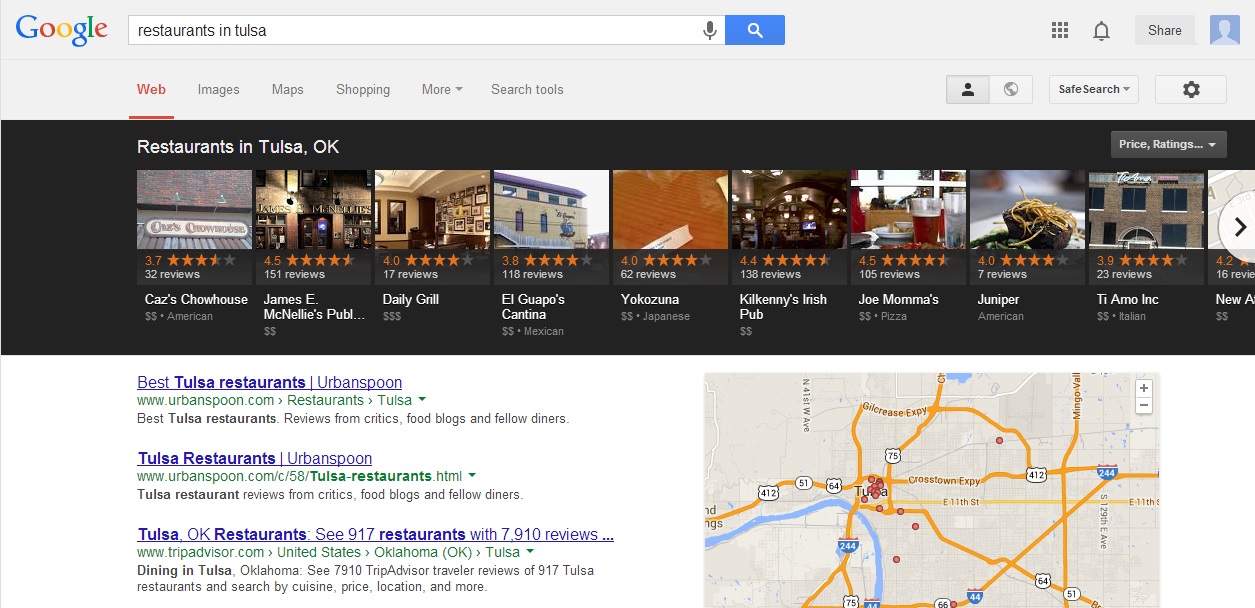How Can Local Businesses Optimize for Google Carousel?
 Most of the changes we see to Google are relatively minor. The average user might notice that the layout is a little different, or the ads are in a new place, but in general most of the massive changes to Google occur under the hood, in their search ranking and spam fighting algorithms. But, as you’ve probably seen by now, Google Carousel is Google’s latest update, and it is a fairly substantial change to how Google users see results.
Most of the changes we see to Google are relatively minor. The average user might notice that the layout is a little different, or the ads are in a new place, but in general most of the massive changes to Google occur under the hood, in their search ranking and spam fighting algorithms. But, as you’ve probably seen by now, Google Carousel is Google’s latest update, and it is a fairly substantial change to how Google users see results.
The carousel is a row of images across the top of some search engine result pages (SERPs) laid on top of a black background. At the moment, the carousel contains up to 20 results, and it appears mainly on SERPs for travel, hospitality, or restaurant related searches. However, the carousel has also sporadically been appearing on queries for sports, entertainment, and education, suggesting the future directions the carousel may be expanding in.
Instead of getting what was called the 6- or 10-pack, users get these images as well as review ratings, property name, and address. To compliment the new carousel you also see the usual sponsored links you often get for other searches. Interestingly, the variation of terms for which the carousel appears seems to be random. Jim Yu from Search Engine Watch notes that a search for “hotels near disneyland” gets the carousel, while “disneyland hotels” did not.
The first bit of good news for search marketing professionals is that all of the results included in the carousel are essentially all in the first spot. Of course the majority of viewers will likely view the results from left to right, but they are not visually ranked in the same manner they were before.
The other good news is that the Google Carousel opens up numerous opportunities for local businesses to strengthen their brand online. BrightEdge research reported that the carousel currently affects 14 percent of keywords across all industries, with travel and hospitality being the most affected.
Restaurants are also highly impacted by the new layout, while entertainment terms only get the carousel for five percent of searches. Clearly, those most affected are also those with the most to gain: local businesses.
There are a few things you can do to ensure you’re business gets into the carousel for relevant searches in your area, and to be sure to beat the other competition within the listings. Yu suggests:
- Set up a Google Places for Business and Google+ page. You can visit this post to learn more about the most important aspects of both services, and understand how to merge the two types of pages for a single business.
- Make sure images for your pages are high resolution, unique, and up to date. Keep them sorted in terms of priority, so that users will see the images you want them to first.
- Encourage happy customers to review your business on Google. Not only will it help you gain conversions online, research has shown it plays a large role in getting your business in the carousel.







Leave a Reply
Want to join the discussion?Feel free to contribute!